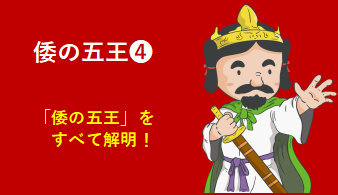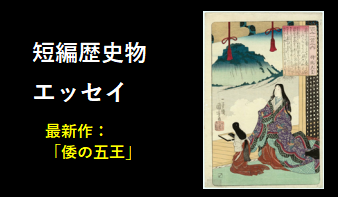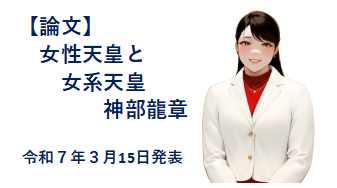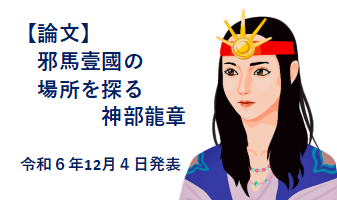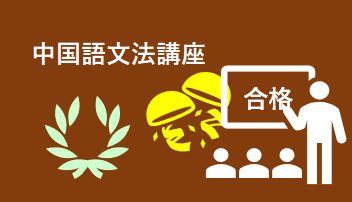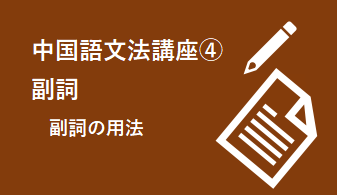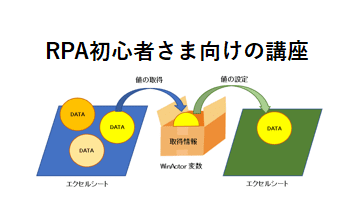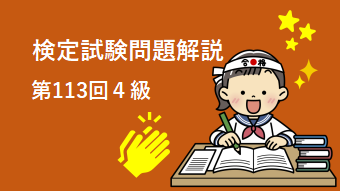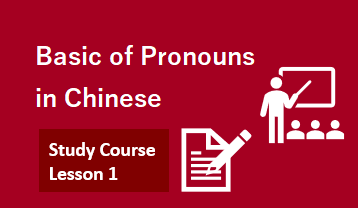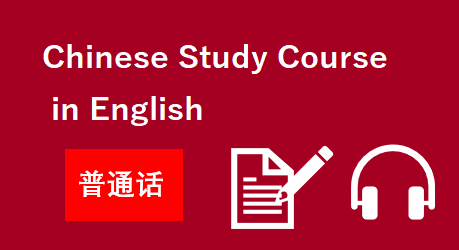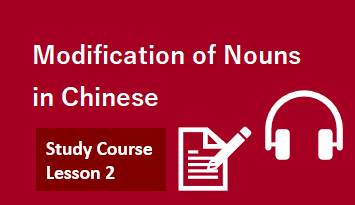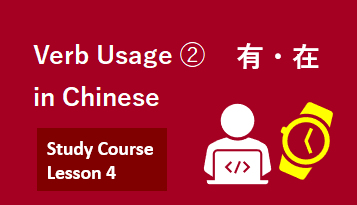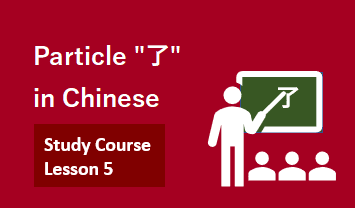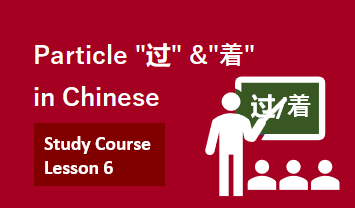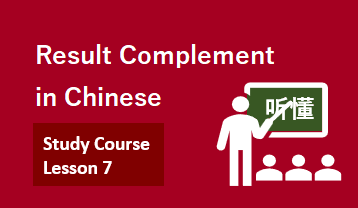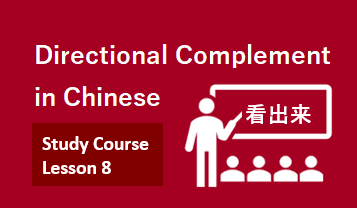Chinese Study Course [ Lesson1 ]

Hello everyone. I'm Goyan. Nice to meet you! Welcome to Chinese Study Course. I will be in charge of the Chinese course. Let's start the Chinese course together! In lesson 1, we will study the basics of Chinese pronouns.

Pronouns are the basis of grammar. Regarding pronouns, I think Chinese is easier to learn than English because it’s simpler than English, such as the nominative and objective cases of personal pronouns having the same shape. Now, let's check the list of personal pronouns, possessive pronouns, demonstrative pronouns, and interrogative pronouns.
1-1 Personal pronoun
| singular | plural | ||
| first person | |||
| I (nominative) | 我 wǒ | we (nominative) | 我们 wǒ men 咱们 zán men |
| my (possessive) | 我的 wǒ de | our (possessive) | 我们的 wǒ men de 咱们的 zán men de |
| me (objective) | 我 wǒ | us (objective) | 我们 wǒ men 咱们 zán men |
| second person | |||
| you (nominative) | 你 nǐ 您 nín | you (nominative) | 你们 nǐ men |
| your (possessive) | 你的 nǐ de 您的 nín de | your (possessive) | 你们的 nǐ men de |
| you (objective) | 你的 nǐ de 您的 nín de | you (objective) | 你们 nǐ men |
| third person | |||
| he she it (nominative) | 他 tā 她 tā 它 tā | they (nominative) | 他们 tā men 她们 tā men |
| his her its (possessive) | 他的 tā de 她的 tā de 它的 tā de | their (possessive) | 他们的 tā men de 她们的 tā men de |
| him her it (objective) | 他 tā 她 tā 它 tā | them (objective) | 他们 tā men 她们 tā men |
- "您" is a polite expression of "你". When indicating a plurality, it is sometimes written as '您们' in colloquial letters, but in spoken language, '您' is followed by a quantifier (e.g. 您几位).
- The possessive "的" may be omitted. I'll explain more in the adnominal modifiers section.
- You can't use '它' for the first mention, like "Please show me that." Use the demonstrative pronoun "这" or "那".
- There is no distinction between singular and plural in "它". "它们" is only used when you want to write in the plural form.
- Also, when "它" does not refer to something in particular, we often write "other".
- "我们" does not include the person you are talking to, but "咱们" is used when you include the person you are talking to. For example, when saying "Are you going to see a movie too? Okay, let's go together!", we use "咱们" because "we" includes the person you are talking to (you).
1-2 Possessive pronoun

When someone asks me, "Whose book is this?", I reply, "It's mine."
Let's say this in Chinese. We simply say "私的".
| first person | ||
| (singular) | mine | 我的 wǒ de |
| (plural) | ours | 我们的 wǒ men de |
| second person | ||
| (singular/plural) | yours | 你的 nǐ de 您的 nín de 你们的 nǐ men de |
| third person | ||
| (singular) | his hers | 他的 tā de 她的 tā de |
| (plural) | theirs | 他们的 tā men de 她们的 tā men de |
1-3 Demonstrative pronoun
(1) Near
| nominative objective | possessive | |
| singular this | 这 zhè 这个 zhè gè | 这个 zhè gè |
| plural these | 这些 zhè xiē | 这些 zhè xiē |
| location here | 这里 zhè lǐ 这儿 zhè ér 这边 zhè biān |
(2) Far
| nominative objective | possessive | |
| singular that | 那 nà 那个nà gè | 那个 nà gè |
| plural those | 那些 nà xiē | 那些 nà xiē |
| location there | 那里 nà lǐ 那儿 nà ér 那边 nà biān |
1-4 Interrogative pronoun

You may still find the interrogative pronoun example sentences difficult. However, I will study the grammar and reading of the examples in earnest, so for now, please don't worry about the details and just look at the usages of the examples.
(1) who
➀subject
| who is the tallest? |
| 谁是最高的? |
| shéi shì zuì gāo de? |
➁complement
| Who is that woman? |
| 那个女人是谁? |
| nà gè nǚ rén shì shéi ? |
③object of verb
| Who did you meet yesterday? |
| 你昨天见了谁? |
| nǐ zuó tiān jiàn le shéi ? |
④object of preposition
| Who did you go to the movies with? |
| 你和谁一起去看电影? |
| nǐ hé shéi yī qǐ qù kàn diàn yǐng ? |
(2) whose
| Whose book is this? |
| Chinese |
| 这是谁的书? |
| zhè shì shéi de shū ? |
(3) what
➀subject
| What happened yesterday? |
| 昨天发生了什么? |
| zuó tiān fā shēng le shén me ? |
➁complement
| What did you hide? |
| 你隐藏了什么? |
| nǐ yǐn cáng le shén me ? |
③object of verb
| What did you eat for dinner yesterday? |
| 这是谁的书? |
| zhè shì shéi de shū ? |
④object of preposition
| What are you talking about? |
| 你在说什么? |
| nǐ zài shuō shén me ? |
⑤usage with nouns
| What kind of TV show do you like? |
| 你喜欢什么样的电视节目? |
| nǐ xǐ huān shén me yàng de diàn shì jié mù ? |
(4) which
➀subject
| Which is more expensive, the red pen or the blue pen? |
| 哪个更贵,红笔还是蓝笔? |
| nǎ gè gèng guì ,hóng bǐ hái shì lán bǐ ? |
➁object of verb
| Which do you drink, coffee or tea? |
| 你喝什么,咖啡还是茶? |
| nǐ hē shén me ,kā fēi hái shì chá ? |
③usage with nouns
| Which tour bus do I take? |
| 我乘坐哪辆旅游巴士? |
| wǒ chéng zuò nǎ liàng lǚ yóu bā shì ? |
(5) when
| Since when have you been here? |
| 你什么时候来过这里的? |
| nǐ shén me shí hòu lái guò zhè lǐ de ? |
(6) where
| Where do you come from? |
| 你从哪里来的? |
| nǐ cóng nǎ lǐ lái de ? |

This is the end of the first study. Dear readers, did you get an idea of how Chinese pronouns are used? See you next time!



